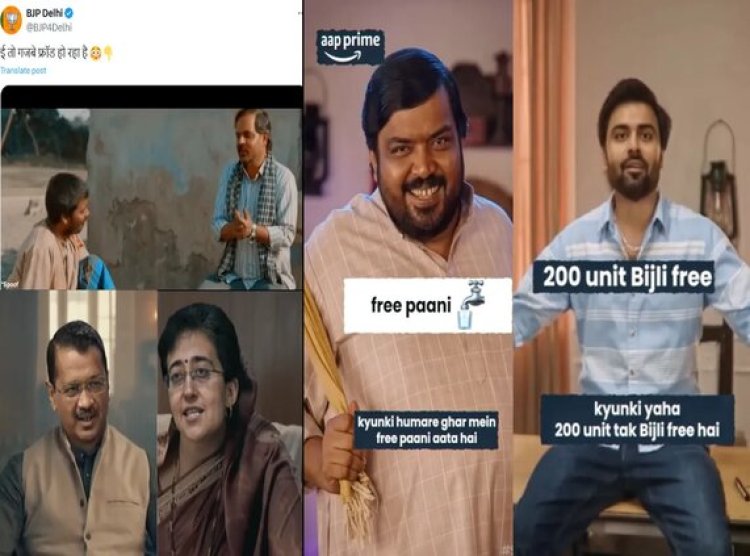Deepfakes in Politics: Ethical Concerns Amid Delhi Elections Campaign
AAP and BJP’s Deepfake Video War Sparks Ethical Concerns Ahead of Delhi Elections, Raising Questions About Technology’s Role in Politics and Advertising

Ahead of the Delhi Assembly elections, the Aam Aadmi Party (AAP) and the Bharatiya Janata Party (BJP) have used deepfake videos inspired by popular web series to target each other.
On December 29, 2024, BJP Delhi shared an edited clip from the Prime Video series Panchayat on X (formerly Twitter). The spoof video depicted AAP’s alleged misuse of personal data under the guise of government schemes, referring to AAP chief Arvind Kejriwal as a “maha thug” (great thug). Though labeled as a spoof, the disclosure was easy to miss.
Extremely dangerous use of AI to impersonate an actor and use the clip for an election campaign. AAP official twitter handle runs the dubbed ad. Here’s the AAP version. Followed by the original UPI ad. The clip has now been deleted. pic.twitter.com/H2r66huHxX
— Sanket Upadhyay (@sanket) December 5, 2024
AAP responded within hours with its own deepfake video, showcasing party schemes and altering the branding in the video to read “AAP Prime.” While the video’s caption stated “spoof,” the ethical implications of such tactics remain questionable.On December 31, BJP escalated the battle by posting another deepfake video, allegedly using SonyLIV’s Maharaniseries, where faces of Atishi Marlena and Arvind Kejriwal were superimposed onto the characters, mocking their unfulfilled promises to temple priests. Additionally, a journalist flagged AAP’s use of a deepfake Google Pay adfeaturing Pankaj Tripathi, further highlighting the growing misuse of such technology.The increasing use of deepfake and AI technology in politics and advertising has raised significant ethical and legal concerns. In May 2024, model Kanchan Nagar sent a legal notice to the Advertising Standards Council of India (ASCI) after her likeness was used in an AI-generated ad without consent. Similarly, fraudsters impersonated WPP CEO Mark Read, and Zomato faced backlash for using AI to depict celebrities like Elon Musk and Lionel Messi in unauthorized scenarios.
Legal frameworks remain insufficient. The Delhi High Court has urged the Union Government to draft guidelines regulating deepfake technology. Under the Information Technology (IT) Rules, 2021, platforms are required to remove reported deepfakes within 36 hours, but enforcement is limited.
Experts warn that the unchecked proliferation of deepfake technology could erode trust, harm reputations, and set dangerous precedents in political discourse and advertising.

 sheetal
sheetal 










